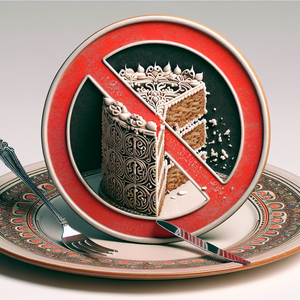Navigating the Neon Lights: A Day in the Life of a Night Shift Nurse

Working the night shift requires a lifestyle that starkly contrasts with the traditional 9-to-5 schedule. Night shift nurses often find themselves in a quieter hospital environment, where the frenetic pace of daytime operations yields to a more subdued atmosphere. However, this calm can be misleading; night shift nurses must remain alert and prepared for emergencies that can arise at any moment. The experience of night shift nursing can sharpen one’s instincts. Veteran night shift nurse Sarah explains, “You learn to read the room. When it’s quiet, you can sense when something is off with a patient long before it becomes a crisis. It’s a skill that takes time to develop but is crucial in our line of work.” This heightened awareness is a testament to the adaptability and intuition that night shift nurses cultivate over time.
The Dynamics of Night Teams
The camaraderie amongst night shift staff is palpable. Nurses, physicians, and support staff come together under the glow of fluorescent lights, forming tightly-knit teams that rely on one another’s support. The shared experience of working through the night fosters bonds that can be both unique and profound. Mark, an emergency room nurse with years of night shift experience, emphasizes the significance of teamwork. “We rely on each other more than you realize. Everyone has their role, and trust is essential. When you’re in a critical situation at 2 a.m., you want to know that your team has your back,” he shares. This sense of unity not only enhances the efficiency of patient care but also provides emotional support during the long hours of the night.
Personal Stories of Resilience and Reward
While the challenges of being a night shift nurse are significant, the rewards can be equally profound. Many nurses find that they can connect more deeply with their patients during the quieter hours of the night. With fewer distractions, these interactions often transcend medical care, allowing for moments of genuine comfort and empathy. Jessica, a night shift nurse working in pediatrics, recalls a particularly touching experience. “One night, I cared for a young girl who was scared and alone. We spent hours talking, drawing, and just being silly. By the end of my shift, she was smiling and ready to face whatever came next. Moments like that remind me why I chose this profession,” she reflects. Such stories highlight how night shift nurses not only provide medical care but also serve as sources of emotional support for their patients.
Health Implications and Coping Strategies
Despite the rewarding nature of their work, night shift nurses often face health challenges that can take a toll both mentally and physically. Sleep disruption, irregular eating patterns, and elevated stress levels are common. To mitigate these challenges, many night shift nurses adopt various coping strategies, including prioritizing sleep hygiene, maintaining a balanced diet, and incorporating exercise into their routines. Kevin, another night shift nurse, emphasizes the importance of self-care. “It’s crucial to take care of yourself if you want to care for others,” he states. “I’ve learned to create a routine that helps me unwind after a shift. Whether it’s a quick workout or some quiet time with a book, it makes a difference in how I feel.” This commitment to self-care is vital in sustaining the energy and emotional resilience needed to perform effectively in such a demanding role.
The life of a night shift nurse is a tapestry woven with challenges, camaraderie, and profound rewards. These dedicated professionals navigate the intricate landscape of healthcare during the hours when most people are asleep, often facing situations that require quick thinking, deep empathy, and unwavering support. Their stories of resilience, dedication, and compassion illuminate the invaluable role they play within the healthcare system. As we honor the contributions of night shift nurses, it is essential to recognize the unique perspectives and experiences they bring to patient care, reminding us that heroes often work behind the scenes, ensuring that care never sleeps. Their commitment ensures that even in the darkest hours, compassion, care, and connection remain a constant presence.
Emergency Room Nurse
HCA Healthcare, Ascension
Core Responsibilities
Provide immediate care to patients with life-threatening conditions, performing triage and prioritizing treatment based on urgency.
Collaborate with a multidisciplinary team to manage critical cases, including trauma and cardiac emergencies.
Educate patients and families on treatment plans and post-discharge care.
Required Skills
Strong assessment and critical thinking skills to make quick decisions in high-pressure situations.
Familiarity with emergency protocols and advanced life support techniques.
Excellent communication skills to relay information to patients and their families effectively.
Pediatric Night Shift Nurse
Core Responsibilities
Monitor and assess the medical needs of children during nighttime hours, addressing urgent health issues as they arise.
Develop and implement individualized care plans in collaboration with pediatricians and specialists.
Provide emotional support to both patients and their families during stressful situations.
Required Skills
Specialized knowledge in pediatric nursing and familiarity with common childhood illnesses and treatments.
Patience and strong interpersonal skills for comforting young patients and managing anxious parents.
Certifications in pediatric advanced life support (PALS) are often required.
Critical Care Nurse
Core Responsibilities
Provide comprehensive care for patients in intensive care units (ICUs), closely monitoring vital signs and administering medications.
Utilize advanced medical equipment and technology to support critically ill patients.
Engage in continuous patient assessment and coordinate with healthcare teams for optimal care delivery.
Required Skills
Expertise in critical care protocols and familiarity with life-support systems.
Strong analytical skills to interpret complex medical data and make informed decisions.
Experience with emergency response and crisis management.
Nurse Educator for Night Shift Staff
Core Responsibilities
Develop and facilitate training programs tailored to night shift nurses, focusing on unique challenges and procedures during nighttime operations.
Mentor and support new nursing staff, fostering teamwork and resilience among night shift teams.
Evaluate the effectiveness of training initiatives and adjust curricula to meet the evolving needs of the healthcare environment.
Required Skills
Experience in nursing education or clinical training, with a focus on adult learning principles.
Strong communication and leadership skills to engage effectively with diverse nursing teams.
Advanced degrees in nursing or education (MSN or higher) may be preferred.
Healthcare Operations Manager (Night Shift Focus)
Tenet Healthcare, Kaiser Permanente
Core Responsibilities
Oversee the operational efficiency of healthcare services during night hours, ensuring adequate staffing and resource allocation.
Collaborate with clinical teams to streamline processes and improve patient outcomes in overnight operations.
Address any operational issues that arise during the night, providing solutions to enhance service delivery.
Required Skills
Strong leadership and organizational skills, with experience in healthcare management.
Proficiency in data analysis to assess operational performance and implement improvements.
Ability to work collaboratively with clinical staff while managing administrative responsibilities.


